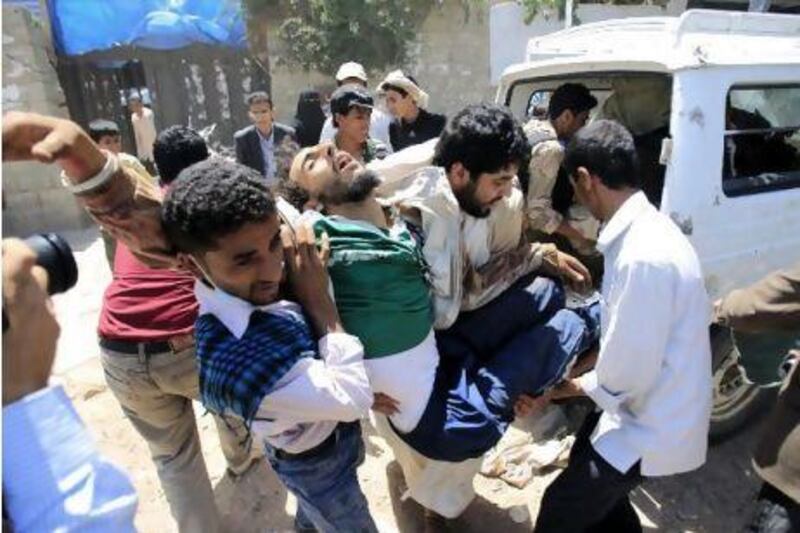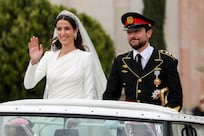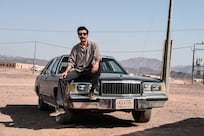SANAA // A ceasefire negotiated by Yemen's vice-president and western ambassadors brought respite to the capital last night after three days of bloodshed in which at least 60 people died.
Only sporadic gunfire was heard after the ceasefire came into force at about 4pm local time.
Picture gallery: Yemen uprising's deadliest day
More than 50 people have died and hundreds have been injured in the bloodiest assault in months on demonstrators calling for the removal of the president, Ali Abdullah Saleh.
The truce between opponents of the Yemeni regime and forces loyal to its embattled president was negotiated by the vice president Abdurabu Mansur Hadi and several foreign envoys, including the US and British ambassadors in Sanaa.
Earlier yesterday, street battles between the two sides had intensified, spreading to the home districts of senior government figures and other sensitive areas of the capital. At least nine more protesters were killed yesterday by shells and snipers.
Mortar shells and rockets were fired at the centre of the city where demonstrators have held a sit-in at a protest camp since the uprising began in February.
"Our camp has been shelled heavily," said Shihab Sharabi, a protest activist. "We are unarmed, and the international community is silent and watching such massacres."
Gunfire also rang out in areas near the home of the president, Ali Abdullah Saleh, and the office of his son, Ahmed, who leads the country's Republican Guards. Local media reported that the office was stormed and burnt by former government soldiers but the information was difficult to verify.
The violence had left hundreds of families trapped in their homes, surrounded by gunfire from the fierce street clashes.
"I have gone to Hael Street to get my relatives out and it was terrible. Red Crescent workers told me they were afraid to get shot. I saw several women and children appealing for help to get out," said one resident, Tawfik Salem.
Some streets in the capital were deserted, with few venturing out to risk getting food or water.
Dozens of pickup trucks and cars loaded with families and personal belongings headed out of the city yesterday after a night interrupted by loud explosions that shook neighbourhoods near the protest camp and the headquarters of a military division that defected from the regime to the opposition.
More than 30 were killed in attacks on Monday, mainly by snipers. On Sunday, pro-regime snipers killed at least 27 and injured 342 when tens of thousands of protesters demonstrated in Sanaa.
Yemen's protest movement has stepped up demonstrations in the past week, angered after Mr Saleh deputised his vice president to negotiate further on a Gulf-mediated, US-backed deal under which he would step down in return for immunity from prosecution.
Mr Saleh, who has backed away three times from signing the deal, remains in Saudi Arabia after being wounded in an attack on his palace in June.
* With additional reporting by Associated Press





